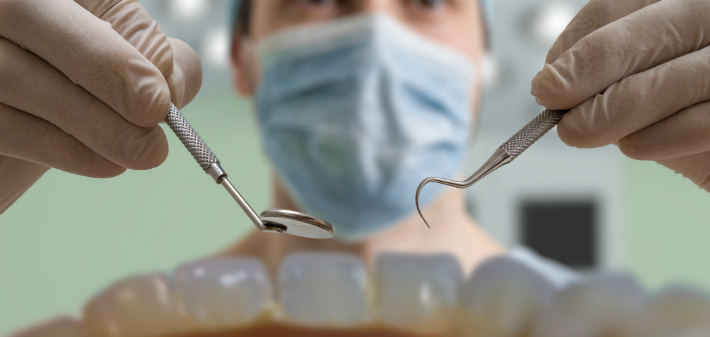By eating properly, controlling swelling, and avoiding disruptive activities, you can recover rapidly from oral surgery
What steps should I take after oral surgery?
Recovering from oral surgery is a balancing act. You have to take it easy, as excessive activity can open your wounds and slow the healing practice. And there are many active steps you must follow to limit swelling, manage pain, and nourish your body. The following tips will help you meet all of these requirements, minimizing oral surgery recovery time and maximizing oral health.
To Eat or Not to Eat?
One of the most important steps to a successful recovery is knowing what foods to eat after oral surgery. The right foods will nourish you without disrupting the wounded area. These include:
- Cottage cheese, hummus, and other smooth dips
- Mashed or refried beans, potatoes, or avocado
- Fully ripe, canned, or baked fruits
- Cooked vegetables
- Soft-cooked, shredded, or ground meat
- Milkshakes, smoothies, or applesauce
- Soft cheeses
- Oatmeal, soup, or cream of wheat
- Fully cooked rice, pasta, quinoa, or bulgur
- Scrambled eggs
Along with eating, be careful with what and how you drink. Avoid beverages that are acidic, fizzy, or extreme in temperature – either too hot or too cold. Do not drink through a straw, as this concentrates the liquid and can open wounds.
Maintaining the Surgical Site
Light bleeding is normal for the first half hour after surgery. You can manage the blood flow by gently placing a piece of gauze over the affected area. If the blood flow is heavier than expected or goes on for longer, moisten a bag of tea and put it over the wound. The bag will absorb excess blood, while tannic acid from the tea will make it easier for the blood to clot over your wound.
Containing Swelling
The area around the wound is likely to swell for several days after the surgery, and controlling this swelling is essential for keeping discomfort and pain to a minimum. Take a pack of ice or a cold, wet washcloth and apply it to the side of your mouth where the wound is. Leave it in place for 20 minutes, and then take it off for 20 minutes. Continue doing this for two days. If your dentist thinks the wound may be infected, use a warm press instead of a cold one. This can help reduce your oral surgery recovery time.
Other Advice
In addition to the previous steps, you should:
- Avoid smoking
- Refrain from exercising rigorously for several days
- Take painkillers and antibiotics according to your dentist’s instructions
- Avoid flossing or brushing near the surgical site
- Avoid rinsing your mouth for the first day, but then rinse after each meal for several days
- Know what foods to eat after oral surgery (and stick to them!)
- Raise your head with several pillows when lying down
As a Little Rock dentist, Arkansas Family Dental provides detailed guidance to all of our patients who have gone through oral surgery. For more information on making a full recovery, contact us today by calling 501-683-8886.


Leave a Reply